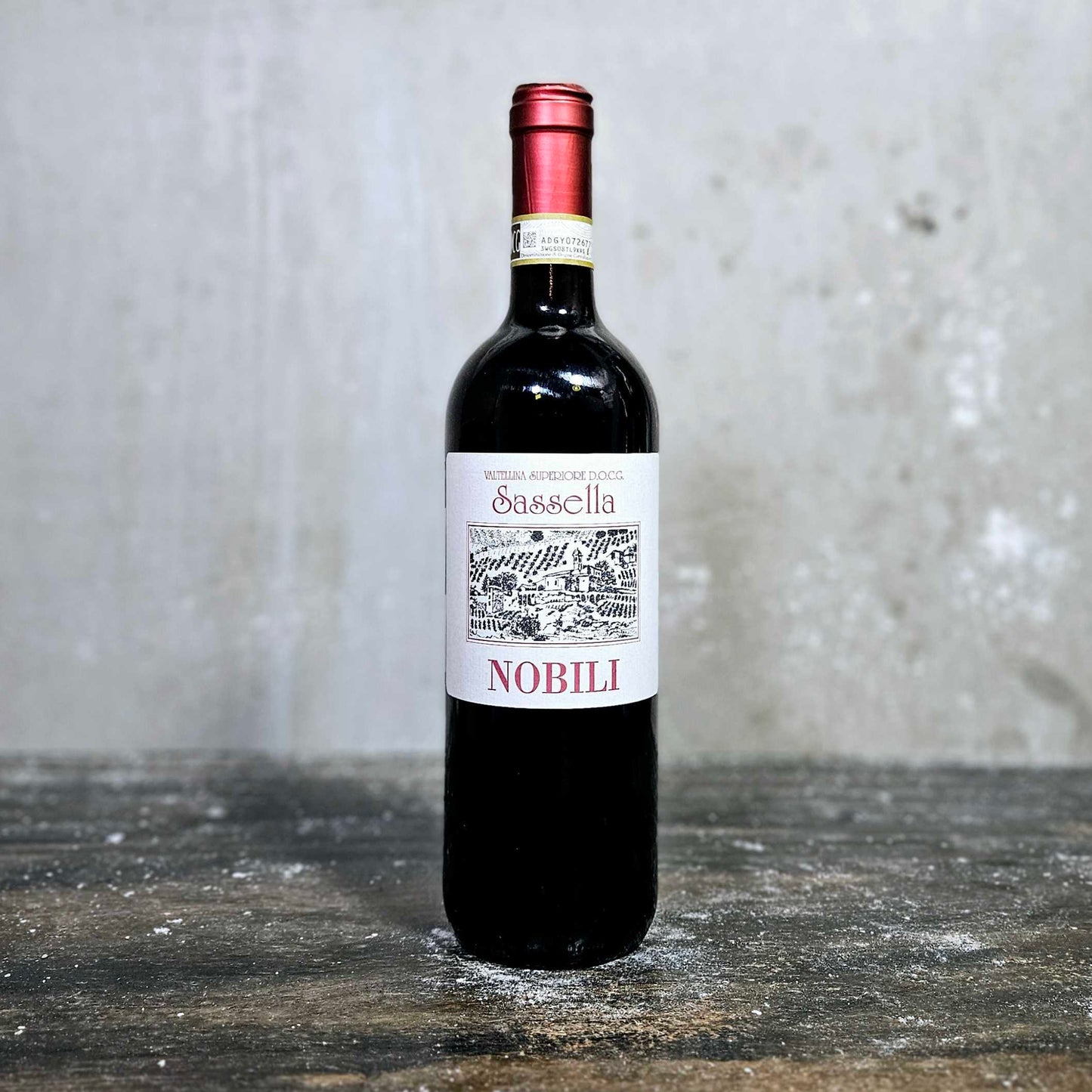Nobili
Nicola Nobili 2021 Valtellina "Sassela
Nicola Nobili 2021 Valtellina "Sassela
Couldn't load pickup availability
TASTING NOTES
Grip, power and a spicy intensity initially mask the surprising lightness of this beautiful wine. Gorgeous perfume, red fruit and a long, persistent finish.
| REGION | Italy > Piedmont |
| GRAPE(S) | Nebbiolo |
| VINTAGE | 2020 |
| ABV | 13% |
| FEATURES | Vegan, Organic |
| SCALE | Dry |
100% Chiavennasca (the local synonym for Nebbiolo) grown on steep slopes with a south-east exposure 350/600m above sea level. Sassela is one of 5 "superiore" sub-zones of Valtellina and is in many ways the most classic expression of the region. Nicola Nobili's Sassella features hauntingly beautiful aromas of red fruits, dried flowers, and hints of spices. On the palate the wine is harmonious, velvety and vibrant. Tannins and alcohol are less pronounced here than in other Nebbiolo growing zones such as Barolo and Barbaresco. At three years of age, the wine is already showing incredibly well and will only continue to get better over the next 5-8 years.
The Valtellina is a valley of glacial origin, furrowed by the river Adda, which runs for a full 120 kilometres from east to west, from the Stelvio Pass to Lake Como.
Embraced in between the Alpi Retiche and Orobie, it runs parallel to chain of the Alps and enjoys a unique microclimate. From dawn to sunset, the sun warms the terraced vineyard, which is set like a precious stone on the Rhaetian slope, fully exposed to the south and soothed by the cool breeze from the north.
Dry-stone walls hold back poor soils composed of flaked granite, where, since time immemorial, the root of the Nebbiolo from the Alps vine has found all the nutrients it needs to create a genetic variability that is unsurpassed.
Nicola Nobili and family make about 1,500 cases of wine from two subregions of Valtellina, Inferno and Sassella. Nicola's wines are not well-known outside of Italy, a result of the fact Nicola is a shy man who barely speaks English and who doesn't make much wine. Nicola does all his farming and harvesting by hand - he doesn't really have a choice as the steep stone terraces are not conducive to mechanization - and in the cellar follows classic practices with extended aging of 2 to 4 years in large wooden botti



